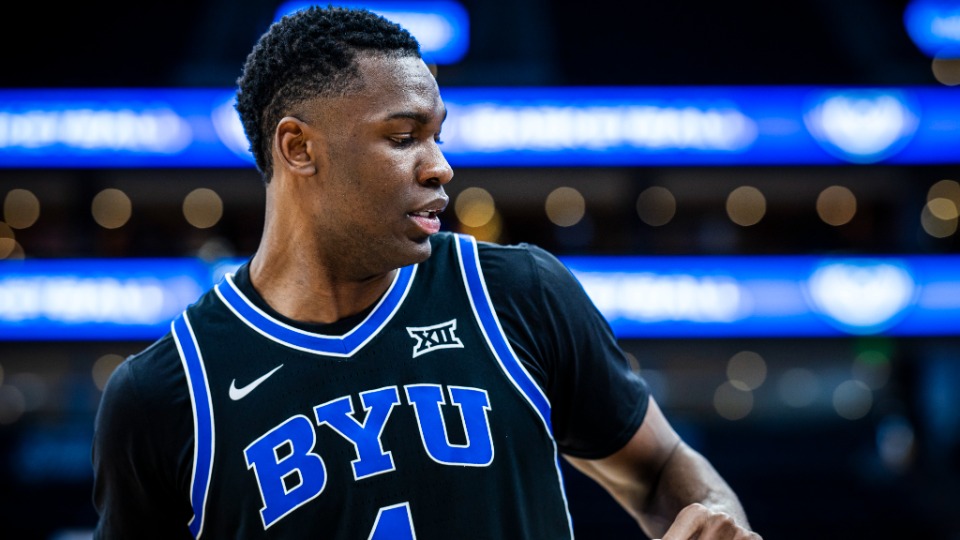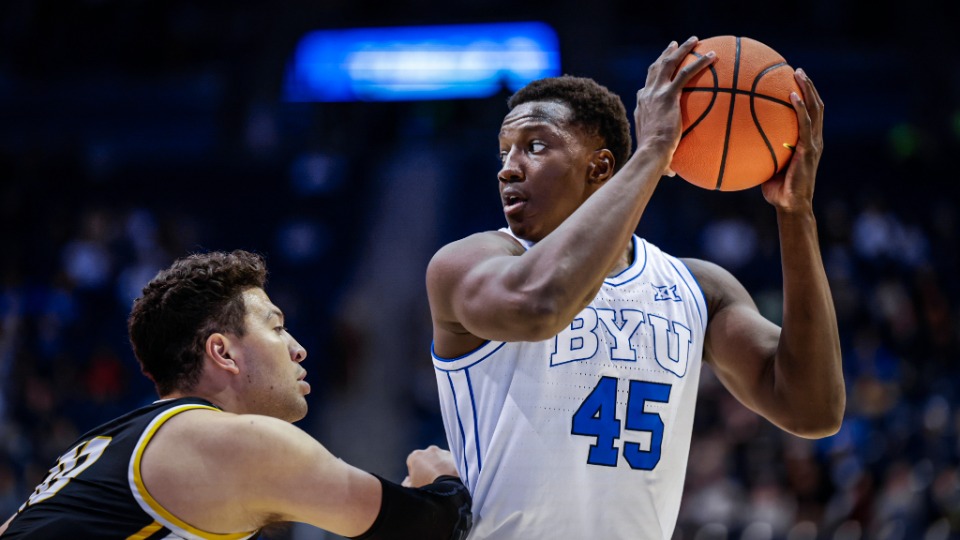There’s nothing easy about being thousands of miles away from home amid multitudes who don’t share your faith.
And yet three Muslim basketball players at Brigham Young University (BYU) — from Egypt, Mali, and Tanzania — are doing just that. Aly Khalifa, Fousseyni Traore, and Atiki Ally Atiki are part of a BYU team playing in the 2024 NCAA Division I Men’s Basketball Tournament, which begins Thursday, March 21, 2024.
Why did they choose a university community filled with members of The Church of Jesus Christ of Latter-day Saints?
Khalifa, from Alexandria, Egypt, said it is important to be in a place where he can practice his faith comfortably.
- 23-24mBKB-vs-Evansville-161.jpg
- 23-24mBKB-vs-Fresno-State-0088.jpg
- _E1_0345.jpg
- byu-basketball-1.jpg
| Temple Square is always beautiful in the springtime. Gardeners work to prepare the ground for General Conference. © 2012 Intellectual Reserve, Inc. All rights reserved. | 1 / 2 |
“I feel like I’m not the only one who’s a man of faith in school,” Khalifa said. “[Muslims and Latter-day Saints] practice their religion really well. We don’t drink, we don’t smoke, we don’t have sex before marriage. There’s a lot of similarities between both religions.”
“It’s good,” the Tanzanian Atiki added, “because our ideas and beliefs are kind of similar.”
For Traore, a native of Bamako, Mali, the Latter-day Saint community’s high moral values are a significant plus.
“This helped me a lot in my decision to come to BYU. We share a lot of similarities. Especially marriage-wise, the law of chastity is super similar,” Traore said. “[Being a Muslim at BYU] is actually super cool. Everyone respects our beliefs.”
For Khalifa, that respect and support is especially important as he fasts during Ramadan, the Islamic holy month that goes through April 8, 2024. Abstaining from food and drink from sunup to sundown is especially challenging for an athlete who needs to maintain energy levels while playing basketball. (Traore and Atiki are observing Ramadan in other ways.)

23-24mBKB-vs-Fresno-State-0088.jpg
Atiki Ally Atiki, a Muslim from Tanzania, says attending Brigham Young University has been a good experience “because our ideas and beliefs are kind of similar.”“I feel like everybody’s supporting me. I feel like they understand because I’m doing this for my faithful reasons,” Khalifa said. “They respect it a lot, and they try to help me get through the day every day during practice and games. They’ve been great to me. It means a lot.”
BYU’s pluralistic ethos has its roots in the earliest teachings of the prophets of The Church of Jesus Christ of Latter-day Saints. For example, Joseph Smith once said, “If it has been demonstrated that I have been willing to die for a ‘Mormon,’ I am bold to declare before Heaven that I am just as ready to die in defending the rights of a Presbyterian, a Baptist, or a good man of any denomination; for the same principle which would trample upon the rights of the Latter-day Saints would trample upon the rights of the Roman Catholics, or of any other denomination who may be unpopular and too weak to defend themselves. It is a love of liberty which inspires my soul — civil and religious liberty to the whole of the human race.”
And an 1841 ordinance in the city of Nauvoo, Illinois — a city Joseph helped found — welcomed people of all faiths.
“Be it ordained by the City Council of the City of Nauvoo, that the Catholics, Presbyterians, Methodists, Baptists, Latter-day Saints, Quakers, Episcopals, Universalists, Unitarians, Mohammedans [Muslims], and all other religious sects and denominations whatever, shall have free toleration, and equal privileges in this city,” the ordinance said.

_E1_0345.jpg
Fousseyni Traore (right), a Muslim from Bamako, Mali, said he was drawn to Brigham Young University’s high moral standards. “This helped me a lot in my decision to come to BYU. We share a lot of similarities. Especially marriage-wise, the law of chastity is super similar. [Being a Muslim at BYU] is actually super cool. Everyone respects our beliefs,” he said.The Church of Jesus Christ continues to hold this view today. Just two years ago, the faith released a 35-page pamphlet called “Muslims and Latter-day Saints: Beliefs, Values, and Lifestyles.”
“There are significant theological differences between the two religions, especially regarding the divinity of Jesus Christ and the need for living prophets,” the pamphlet says. “However, Muslims and Latter-day Saints continue to create and enjoy productive relationships by acknowledging the spiritual truth that each religion possesses and by fostering understanding and respect for each other.”
BYU seeks to create an atmosphere in which religious tolerance and support can thrive. And these Muslim basketball players feel it.
“[Latter-day Saints at BYU] will help you no matter what,” Traore said. “You will always feel welcome because it’s like home, it’s like family.”
That comment was echoed several years ago by one of Khalifa’s basketball scouts, who said the “whole BYU community has been nothing but amazing and welcoming [Khalifa] with open arms and making him feel like he’s a huge part of the community — not only the basketball team but the entire Provo community.”
To those of other faiths considering BYU, Khalifa said the university is a great option. “Don’t be scared if you want to practice your faith,” Khalifa said. “A lot of people think it’s crazy strict at BYU. But if you want to practice your faith without any distractions, I feel like this is the place to be.”